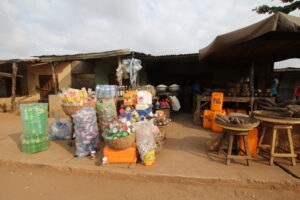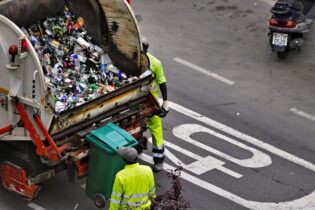Mary Ngechu – a sustainability ambassador, environmental enthusiast and social entrepreneur – speaks to Infrastructure News on the value of waste, the waste industry in East Africa and her upcoming keynote address at the upcoming International Solid Waste Association (ISWA) congress in Cape Town.
Tell us about the ISWA2024 Conference and why people should attend? The International Solid Waste Association (ISWA) is an international network of waste professionals and experts whose mission is “To Promote and Develop Sustainable and Professional Waste Management Worldwide and the transition to a circular economy.” ISWA is hosting its World Congress from the 15th to the 18th of September in Cape Town, this is the first time the conference will be held on African soil. This event offers a platform for individuals from diverse nations to exchange knowledge and cultivate tailored solutions upon returning home. With participation from global industry leaders, attendees can gain valuable insights into waste management strategies worldwide. By leveraging lessons from both successes and failures, we can accelerate our progress towards sustainable waste management practices. Tell us about waste management in East Africa? East Africa is experiencing a lot of growth and with that comes a new set of challenges such as urbanisation and changes in consumption patterns. In Kenya particularly, there has been an increase in the number of households that require waste collection and disposal. People, for instance, used to get food from the farm and then consume it, but now we visit supermarkets that uses a lot of packaging that in the end generates waste. The annual volume of waste generated in sub-Saharan Africa (SSA) increased from 81 million tonnes to 174 million tonnes per year between 2012 and 2016 and is projected to reach 269 million tonnes in 2030. While the generated waste has nearly doubled, very little new infrastructure has been built. What can be learnt from Kenya? In 2017, Kenya passed a law banning single-use plastic bags. It was considered one of the strictest in the world at the time, with hefty fines and penalties for individuals and businesses found violating the regulations. This was done to reduce plastic pollution. Other East African countries have followed suite. There is now an entrenched practice in the country with using more sustainable carrier bags. Kenya has also developed the Sustainable Waste Management Act. The act embraces extended producer responsibility (EPR), a critical concept in a circular economy. EPR mandates manufacturers and producers to assume accountability for their products throughout their lifecycle, including post-disposal stages. By doing so, the Act encourages sustainable product design, waste reduction, recycling, and addresses resource depletion. This means that waste must be separated at source and there are some new technologies that can automate that process. Our country has also given tax incentives to companies that are investing in new technologies that deal with waste management and recycling. There are also incentives for companies that use a high percentage of recycled goods in their manufacturing process.What is the connection between waste and wealth?
According to the Africa Waste Management Outlook Report by the United Nations Environmental Programme, approximately 80% of waste generated in Africa is solid waste, and only 4% of that is recycled. The same report states that diverting waste away from dumpsites and landfills towards reuse, recycling and recovery, could inject an additional US$8 billion every year into the African economy, and create significant socio-economic opportunities for the continent. A large portion of the waste generated in Africa can be used as a raw material in manufacturing processes. In addition to recycling, there are projects that can convert waste to energy. There is the option of composting organic waste and there are also innovations with increasing the shelf life of food to reduce waste. Additionally, consumers are demanding that brands become environmentally conscious and will favour companies that reduce, reuse and recycle. Companies must adhere to environmental, social, and governance (ESG) standards – with waste management as an essential element on this roadmap to a sustainable future. This is an opportunity for businesses to interact positively with communities and grow environmental awareness among consumers and businesses. What are some of the trends and technologies in waste management? As stated previously, companies are converting waste to energy either to power their own processes or to create energy for other citizens. There is also a movement towards decentralised waste management where each community managing and processing their waste in their locality and not sending it all to a centralised large processing facility or often land fill. What are some challenges experienced in the waste management sector? The biggest challenge we have is the lack of awareness of available technologies in waste management. There is also a lack of understanding regarding the benefits of separating waste at source. There is poor urban planning with a lack of adequate collection and disposal infrastructure. Different countries have developed different waste management standards, and there is a lack of uniformity. Government budgets for waste management are often insufficient to address the scale of the problem. This results in underinvestment in infrastructure and services, hindering effective waste management practices. If you could grant one wish for the sector, what would it be? For all stakeholders to work together. Waste management has many facets to it, from infrastructure, public awareness, technology to regulation and policy. We all need to work together and pool our efforts. Join the ISWA2024 World Congress in Cape Town, South Africa from 15 to 18 September 2024 by following the instructions on this page to hear Mary give her keynote speech alongside many other industry leaders talking about key issues in the waste management sector.






